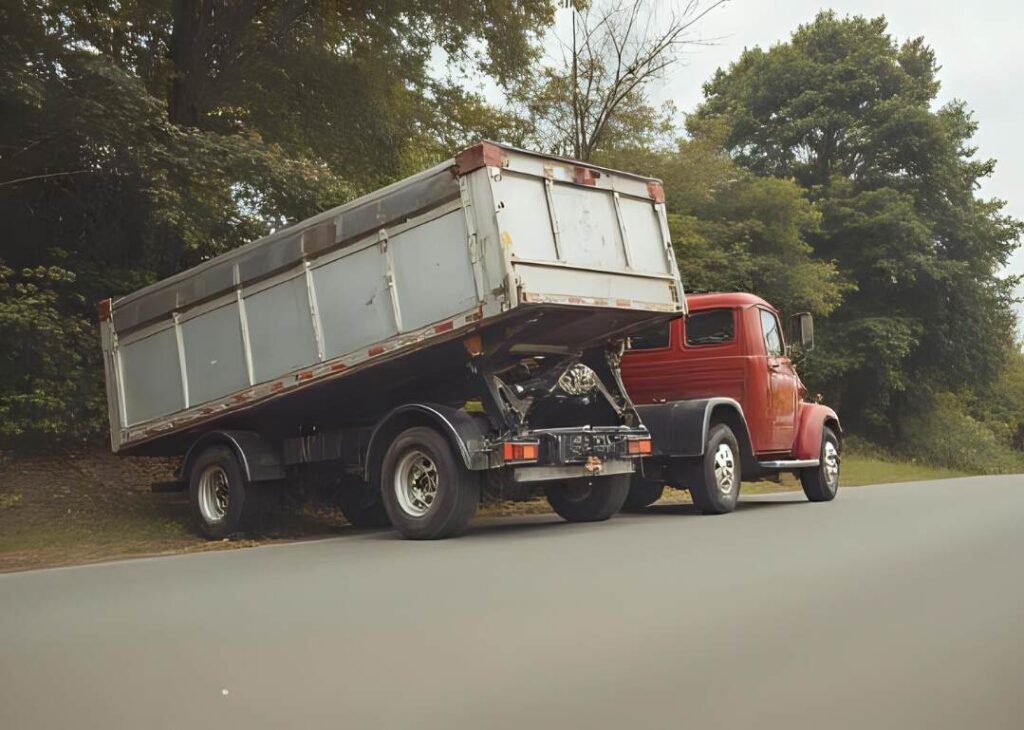Truck drivers and transportation companies play a vital role in keeping Georgia’s economy moving, hauling goods across cities like Atlanta, Macon, and Savannah. But when one of these vehicles is involved in a serious accident, especially on high-speed interstates like I-75 or I-20, the aftermath can be catastrophic. In the immediate chaos, injured drivers and passengers are often left wondering what to do next, especially when the accident involves a commercial vehicle governed by both state and federal regulations. This is where the process of filing a personal injury claim becomes both critical and complex.
Under Georgia law, victims of truck accidents have the right to pursue compensation when a negligent driver or company is at fault. O.C.G.A. § 51-1-6 provides for a legal cause of action when a breach of duty results in harm, while O.C.G.A. § 9-3-33 limits the window to file a personal injury claim to just two years from the date of the accident. Truck accidents often implicate multiple defendants, such as the truck driver, their employer, the vehicle maintenance contractor, or the freight loader, and each brings unique legal challenges. For claimants, failing to properly identify liable parties or preserve critical evidence can jeopardize the entire case.
The financial and legal stakes are high. Medical bills, lost wages, and long-term rehabilitation can easily climb into six or seven figures. Add in the complexity of dealing with corporate insurers and federal trucking regulations, and it’s clear that victims can’t afford to make mistakes. This piece walks you step-by-step through the process of filing a truck accident claim in Georgia, covering everything from documenting the scene to negotiating with insurers to taking your case to court if necessary.

Step 1: Seek Immediate Medical Attention
The first and most crucial step after a truck accident is to seek immediate medical care, even if you feel fine. Georgia law allows you to recover for both economic and non-economic damages, but only if you can demonstrate that your injuries resulted directly from the crash.
Why it matters:
- Medical records serve as the foundation for your injury claim.
- Insurance companies often dispute claims that don’t have prompt medical documentation.
- Under O.C.G.A. § 51-12-2, pain and suffering damages require evidence of physical injury or emotional trauma.
Even if EMS wasn’t dispatched to the scene, visit an ER or urgent care within 24 hours. Delays can be used by the opposing side to argue that your injuries weren’t related to the crash.
Step 2: Report the Accident to Law Enforcement
In Georgia, all truck accidents involving injury, death, or property damage over $500 must be reported to law enforcement under O.C.G.A. § 40-6-273.
Call 911 and request a police report. The official report will:
- Document the basic facts of the crash (location, time, vehicle types, etc.)
- Identify all parties involved
- Include witness names
- Potentially assign fault
Make sure to request a copy of the accident report once it becomes available, typically through the Georgia Department of Public Safety or BuyCrash.com. Your attorney will use this in negotiations or litigation.
Step 3: Notify Your Insurance Company
Even if the truck driver was clearly at fault, notify your own insurer as soon as possible. Most policies require prompt notice of any accident, and failing to report it may jeopardize your uninsured motorist (UM) or underinsured motorist (UIM) coverage.
Provide only basic facts:
- Date, time, and location of the crash
- Names of parties involved
- Injuries sustained
Avoid providing recorded statements until you speak with a lawyer. Insurance adjusters are trained to elicit statements that can later be used to reduce your compensation.
Step 4: Hire an Experienced Georgia Truck Accident Attorney
Truck accident claims differ from standard auto cases in scope, complexity, and resistance from insurers. An experienced Georgia personal injury lawyer will:
- Identify all liable parties (driver, trucking company, broker, maintenance contractor)
- Preserve evidence via spoliation letters
- Obtain critical documents like the driver’s logbooks and vehicle inspection records
- Build your case around FMCSA violations and Georgia tort principles
Under O.C.G.A. § 51-2-2, employers can be held vicariously liable for their employee’s negligent acts. A skilled lawyer can use this to go beyond the driver and target the company’s deeper pockets.
Step 5: Preserve Evidence Early
Timing is everything. Trucking companies often have legal teams ready to respond immediately after a crash to protect their interests. They may try to “lose” or overwrite valuable data such as:
- Black box data (event data recorders)
- Dashcam or surveillance video
- GPS records
- Hours-of-Service (HOS) logs
To counter this, your atlanta personal injury lawyer should send a spoliation letter immediately. This is a formal notice that the opposing party must preserve all potentially relevant evidence. Failure to comply may result in sanctions or adverse inferences under Georgia law.
Step 6: Investigate Liability and Determine All Defendants
Georgia truck accident cases often involve multiple liable parties. To file a strong claim, your legal team must identify everyone who contributed to the accident, including:
- The truck driver (negligent driving, fatigue, intoxication)
- The employer (negligent hiring or supervision)
- The vehicle maintenance provider (faulty brakes, tires)
- The shipping company or broker (improperly loaded cargo)
In cases involving hazardous materials, additional federal regulations may apply under 49 CFR §§ 171–180, and violations may lead to strict liability.
The advantage of naming multiple defendants is two-fold:
- Increases potential recovery sources
- Prevents finger-pointing defenses that reduce your payout
Step 7: Document All Damages
To file a successful claim, you must document all your losses, not just medical bills. In Georgia, recoverable damages include:
- Past and future medical expenses (O.C.G.A. § 51-12-7)
- Lost income and diminished earning capacity
- Pain and suffering (physical and emotional)
- Property damage
- Loss of consortium (for spouses)
- Wrongful death benefits (if applicable)
Save all receipts, prescriptions, and doctor’s notes. Maintain a pain journal and obtain employer documentation for missed work. In serious injury cases, your attorney may bring in life care planners or vocational experts to project future costs.
Step 8: File a Third-Party Insurance Claim
Once liability is reasonably clear and damages are documented, your attorney will file a claim with the at-fault party’s insurance carrier. Georgia requires all commercial trucks to carry substantial minimum coverage:
- $750,000 for general freight
- $1,000,000+ for hazardous materials
The demand letter should include:
- A statement of facts
- Summary of injuries and treatment
- Itemized damages
- Legal theories of liability
- Deadline for response
This begins the negotiation phase. Insurers will likely push back, especially on pain and suffering. Settlement offers can come quickly or take months, depending on the strength of your evidence.
Step 9: Consider Filing a Lawsuit if Negotiations Fail
If the insurance company refuses to offer a fair settlement, you may need to escalate by filing a lawsuit. The statute of limitations in Georgia for personal injury and wrongful death is two years from the date of the crash under O.C.G.A. § 9-3-33.
Pre-suit demands do not toll this deadline, so do not wait too long.
Your lawsuit will go through several phases:
- Pleadings (complaint and answer)
- Discovery (interrogatories, depositions, document production)
- Motions (dismissal, summary judgment)
- Trial or settlement
Truck cases often benefit from expert witnesses, including:
- Accident reconstructionists
- Medical professionals
- Industry compliance experts (FMCSA)
Filing suit may also pressure insurers to settle to avoid a costly trial.
Step 10: Prepare for Comparative Fault Arguments
Georgia follows a modified comparative negligence rule under O.C.G.A. § 51-12-33. If the insurance company or defense team can convince a jury that you were 50% or more at fault, you recover nothing.
Common defense strategies include:
- Alleging speeding or distraction on your part
- Claiming weather, road conditions, or sudden emergencies
- Using partial medical records to argue pre-existing injuries
Your legal team should preempt these tactics by gathering strong counter-evidence:
- Dashcam footage
- Witness statements
- Full medical history showing causation
- Expert testimony on fault allocation
Step 11: Finalize the Claim or Verdict
Once a settlement is reached or a jury verdict is returned, the claim concludes with:
- Payment from insurer or judgment debtor
- Signing of release forms
- Lien resolution (medical bills, health insurers)
- Distribution of funds
In wrongful death claims, Georgia law (O.C.G.A. § 51-4-2) defines who may receive the compensation:
- Surviving spouse
- Children
- Parents (if no spouse or child)
Your attorney will ensure all legal procedures are followed and that funds are distributed according to probate rules if applicable.
Conclusion
Filing a truck accident claim in Georgia is not a one-size-fits-all process. It requires a clear understanding of liability laws, meticulous documentation of damages, and proactive legal strategy. From the moment the crash occurs, every step, getting medical care, preserving evidence, identifying all parties, and meeting filing deadlines, directly affects your chances of success.
Under Georgia law, victims who take early action, hire experienced counsel, and push back against insurer tactics can often secure full and fair compensation. Whether your accident involved a tractor-trailer on I-285 or a local delivery truck on Peachtree Street, the legal standards are high, but so are the stakes.
If you’ve been injured in a truck crash in Georgia, don’t delay. Your financial recovery and legal rights depend on swift and informed action.
If you’ve been injured due to someone else’s negligence, contact us for a free consultation today. Our Georgia personal injury attorneys are ready to help you understand your rights and fight for the compensation you deserve.



